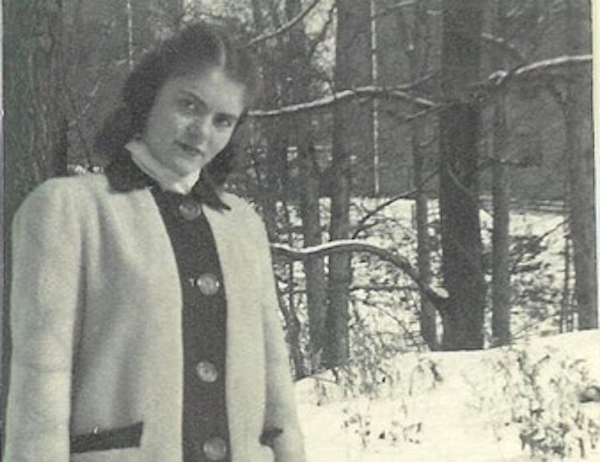Every time we turn around lately, somebody is angry or offended or something. Indeed, it almost seems to be worse as we’ve moved closer to Christmas.
That bothers me.
We really aren’t the first to feel this way. We don’t have a monopoly on bitter politics that divide families, or media that isn’t always trustworthy, or strife between racial and ethnic groups, or any of the other problems thrown into our faces every minute of every day. We don’t even have a monopoly on stolen elections or pandemics. We just have access to social media, rather than soapboxes, so it seems worse.
Once upon a time, just a century and a bit back, there was word of mouth and the newspaper. That was all. And newspapers were supposed to be trustworthy. Personal bias toward my trade aside, I can’t help but wonder if we weren’t better off when disagreements could be settled through debate, avoiding those with whom we disagreed, or if worse came to worse, resorting to fisticuffs – and newspapers like this one could be trusted to document the facts of the matter.
Francis Church was no stranger to the ills of the world, or an overwhelming sadness that pervaded society whilst metamorphosing into seemingly everyone carrying the proverbial chip on their shoulder. Church was a New York newspaper writer in 1897, a time of political scandals, injustice, war and general upheaval. His personal life wasn’t much better.
Then one day, Church’s newspaper received a letter from a little girl named Virginia O’Hanlon.
In that letter, Virginia asked if Santa Claus was real, as she wanted to believe, or simply a story told to children to make them behave, as her friends said. As she struggled with the same quandary that children have dealt with for generations, Virginia’s father told her to write a letter to the newspaper, since the Sunalways told the truth.
Church’s response has become one of (if not the) most reprinted editorials in the history of newspapers. The Victorian prose doesn’t find a home as easily these days, but I do believe we’d do better if it did.
By no means am I shoving aside the true meaning of Christmas. There is no doubt in my heart or mind that Jesus Christ was born to bring salvation to all mankind, regardless of the actual date (which I feel is accurate, but that’s neither here nor there).
We have a copy of Church’s response to Virginia, clipped from a Baltimore newspaper in the 1920s. Near as I can figure, my Great-Aunt Eleanor cut it out and decided it was worthy of preservation in a tattered book of pasted clippings about my great-grandfather. Most of the clippings are about Mr. Traylor’s young men’s chorale, which was organized to “keep young men out of mischief.” One has to wonder if young women didn’t get into mischief during the second decade of the 20th century, but that’s a column for another day.
Another clipping on the same yellow, brittle page shows that the chorale was singing in Baltimore for Christmas; mixing news stories and editorial commentary wasn’t uncommon back then. All I can figure is that Aunt Ellie saw “Yes, Virginia,” and in a fit of completely atypical whimsy, she decided it needed saving. It’s a mystery that created many pleasant Christmas memories in our family.
For years, Papa would break out the clipping when the time was right, type it out fresh word-for-word on his Royal or Underwood, and pass it on to the typesetters. Later, even after green-lettered terminals and eventually real computers replaced the old typesetting machines, Papa would still type it every year, regardless of the fact that it would have been more efficient to store it digitally for future use.
It was a tradition not to be forgotten, so a little Irish girl and a writer in New York became special guests at our house for Christmas every year.
Virginia was caught up in a time that had to be terrifying to children; there was violence and crime in the streets, her family lived in a poor part of the city, and it’s unlikely that during her eight years leading up to that letter she had known even the slightest of comforts taken for granted by many of today’s needy. Like kids everywhere, she needed and deserved some hope and reassurance, and Francis Church gave it to her – and to millions of children and adults ever since.
I’ll leave the Santa Claus discussion to parents, but the spirit of Santa Claus, as Church describes in his editorial, is always here, if we have the courage to release it from the cage where it is kept.
I am no Francis Church, nor will I ever be a writer of the quality of my father, but dodgast it, there most certainly is a Santa Claus.
He may not be a jolly fat man who crawls down chimneys, but Santa Claus is indeed real. He is the kind word in a bad time. He is the helping hand offered to a stranger. He is the tightly clenched lips rather than a sharp retort when someone wants to escalate an argument. Santa Claus is there in every donation of time or money that takes a little extra effort. He is the handshake or the hug, the shared prayer in a time of crisis, the decision to do what’s right for others before worrying about one’s self.
I’m glad to be able to affirm that yes, Virginia – and everyone else – there really is a Santa Claus.
Merry Christmas, my friends.







